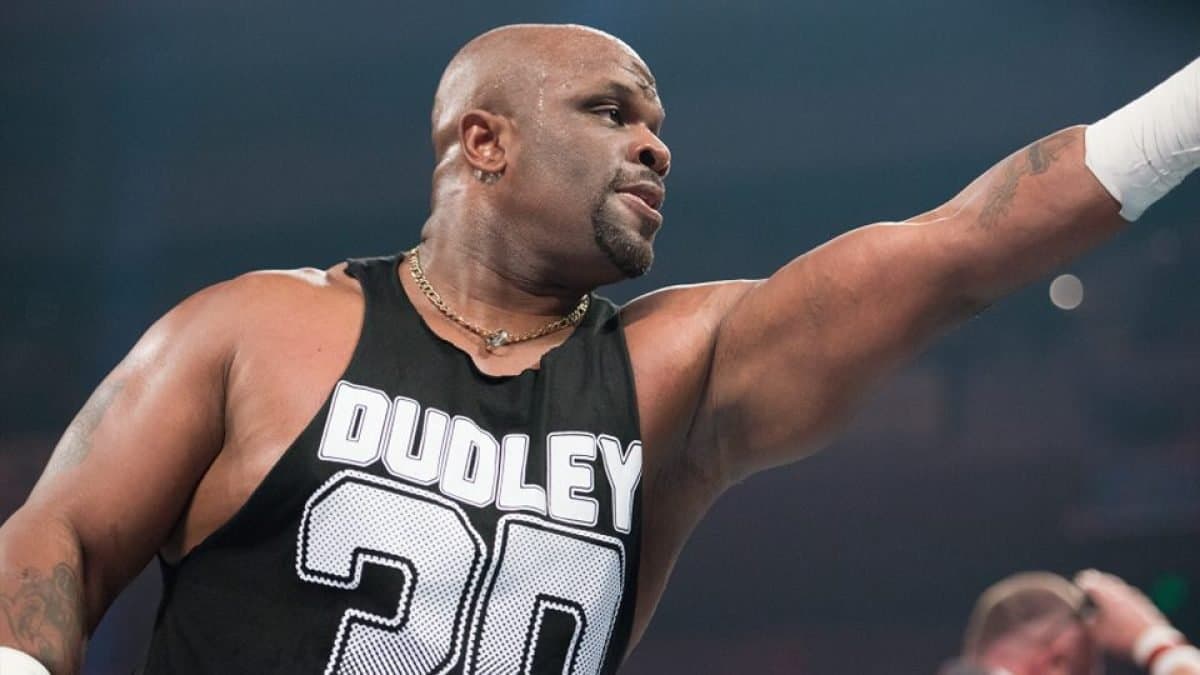In a revealing episode of the podcast INSIGHT with Chris Van Vliet, WWE Hall of Famer D-Von Dudley reflected candidly on one of the darkest chapters in professional wrestling history: the notorious “Mass Transit Incident” that took place in Extreme Championship Wrestling (ECW) in 1996. This moment not only left a lasting impact on D-Von’s career but also forever altered the trajectory of ECW. Speaking from experience, D-Von also recounted another near-tragedy involving a match with Edge where he feared paralysis, highlighting the physical risks wrestlers regularly endure.
The Background and Setup of the Mass Transit Incident
The incident unfolded on November 23, 1996, during an ECW house show in Revere, Massachusetts. D-Von Dudley was originally scheduled to team with Axl Rotten in a tag match against The Gangstas (New Jack and Mustafa Saed). However, Rotten had a family emergency and could not attend, forcing an unexpected substitution. Enter eighteen-year-old Erich Kulas, a local aspiring wrestler who convinced ECW promoter Paul Heyman he was 21 and experienced, claiming to have trained under Killer Kowalski—a well-respected wrestling trainer[3].
Known by his ring name “Mass Transit,” Kulas was characterized by a bus driver gimmick. The match was booked as a squash, where The Gangstas would dominate and brutalize Kulas to build crowd sympathy for D-Von Dudley’s eventual rescue[1]. At the time, ECW was famous for its hardcore style involving extreme violence and use of foreign objects.
What Went Wrong?
Before the match, Kulas requested that New Jack blade (make a cut on his forehead to produce bleeding) him due to his inexperience with the dangerous practice. New Jack agreed, but the results were catastrophic. New Jack cut Kulas too deeply, severing two arteries in his forehead, causing massive blood loss and unconsciousness in the ring[3]. This was a legitimate injury, not part of any scripted stunt.
During the match, The Gangstas viciously attacked Kulas using real weapons like crutches, toasters, and acoustic guitars — none were gimmicked or fake props — making the confrontation extraordinarily violent. D-Von himself was beaten outside the ring, isolated by the Gangstas as part of the planned storytelling and to emphasize Kulas’ vulnerability inside the ring[1][2].
The Fallout and Lasting Impact
The aftermath of the Mass Transit Incident sent shockwaves throughout the wrestling world. The event was widely condemned and became emblematic of ECW’s risky approach to hardcore wrestling. A syndicated television news program, Inside Edition, aired an exposé portraying Kulas as an unprepared minor victim of the violent attack, blaming ECW for negligence. The Kulas family announced intentions to sue the promotion over the incident. This negative media attention contributed to Request TV, ECW’s pay-per-view provider, initially canceling the company’s first-ever pay-per-view event, Barely Legal, which ended up delayed for months following intense intervening by Paul Heyman[2].
From inside the industry, the incident is recognized as a critical turning point. According to multiple sources, Kulas was a willing participant and knew the risks, although he had clearly misrepresented his age and experience to ECW management. New Jack’s controversial role and actions remained a focal point of legal and ethical debate[3].
D-Von Dudley’s Reflections
Decades later, D-Von Dudley opened up about the traumatic experience on INSIGHT, describing it as one of the scariest moments in his professional life. He expressed regret over the incident, saying, “I wish it could have been different.” D-Von also detailed how the chaos impacted him emotionally and physically, emphasizing how close the whole situation came to ending in tragedy—not just for Kulas but for everyone involved[4].
Sources close to D-Von reveal that the incident has haunted him over the years, fueling his passion for improving wrestler safety and professionalism. As a veteran, he acknowledges the inherent dangers of professional wrestling but stresses that there should be limits to protect athletes’ well-being.
The Mass Transit Incident in Wrestling History
The Mass Transit Incident remains one of ECW’s darkest moments. While ECW earned praise for its edgy content and helped pioneer a new style of hardcore wrestling, this tragedy cast a long shadow over its legacy. Wrestling historians and insiders consider it a cautionary tale about the consequences of blurring scripted entertainment with real-life danger and inadequate vetting of talent[1][2].
Despite the horror, this incident is credited indirectly with forcing ECW and the wider wrestling industry to raise standards concerning performer safety, age verification, and match planning. The ruthless events of that night serve as a stark reminder of the sport’s physical toll.
Other Near-Death Experiences of D-Von Dudley
During the same INSIGHT podcast, D-Von also shared harrowing memories of a match with WWE superstar Edge in which he feared paralysis. The match moment was so dangerous it left D-Von questioning his future in wrestling. These stories showcase the gritty reality behind the spectacle — wrestlers constantly face life-altering risks in their pursuit of entertainment[4].
Looking Ahead: D-Von’s Contribution to Wrestling Safety
Today, D-Von Dudley is committed to nurturing safer wrestling environments through his wrestling academy in Winter Park, Florida. His candid accounts and willingness to confront these traumatic past events provide a valuable perspective to up-and-coming wrestlers. Industry insiders credit him for using his experiences to educate others about the importance of safety without sacrificing the intensity fans expect[4].
Conclusion
The Mass Transit Incident stands as an indelible chapter in wrestling history, marked by tragedy, controversy, and a hard lesson about the stakes of professional wrestling. D-Von Dudley’s recent openness brings renewed attention to this dark night in ECW and underscores the need for vigilance in protecting performers. Wrestling fans and professionals alike continue to remember this painful episode as a statement of how far the industry has come — and how far it still must go — to ensure wrestler safety without compromising the art form.
